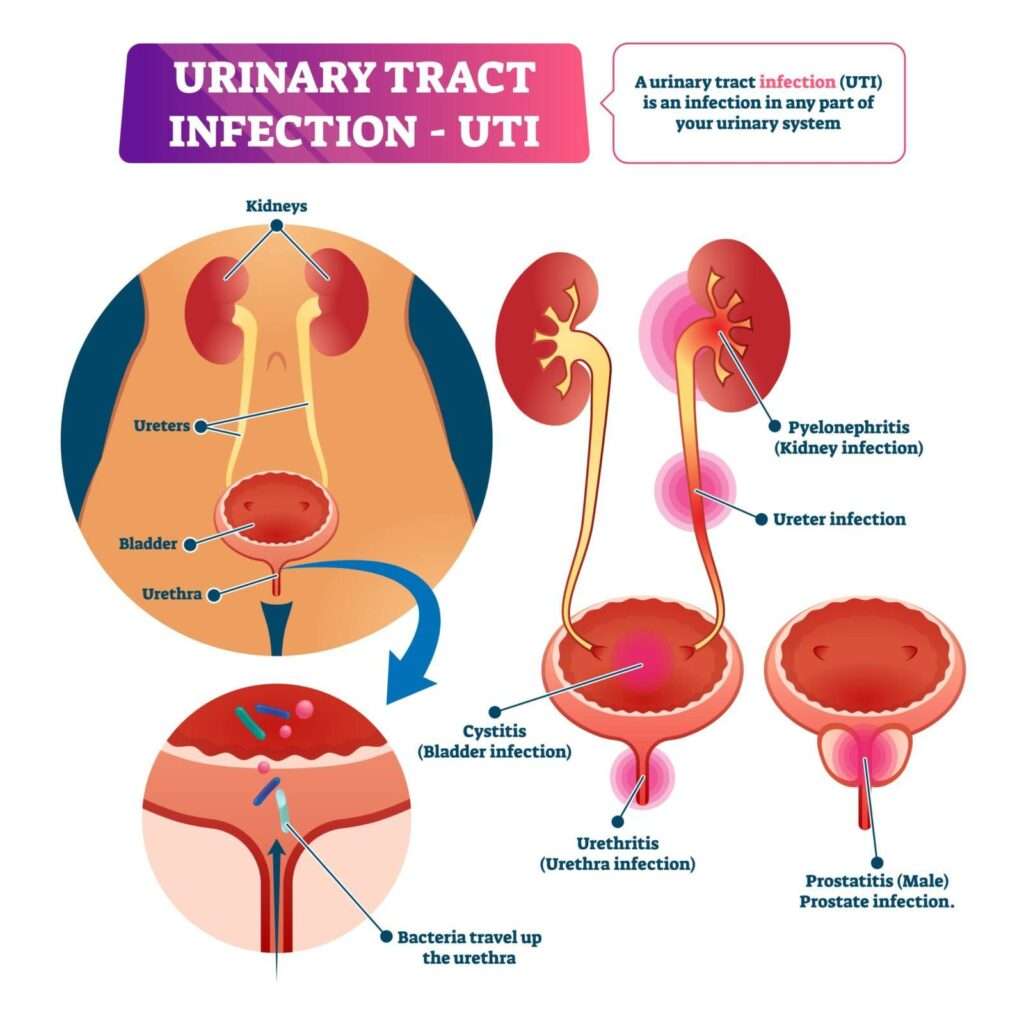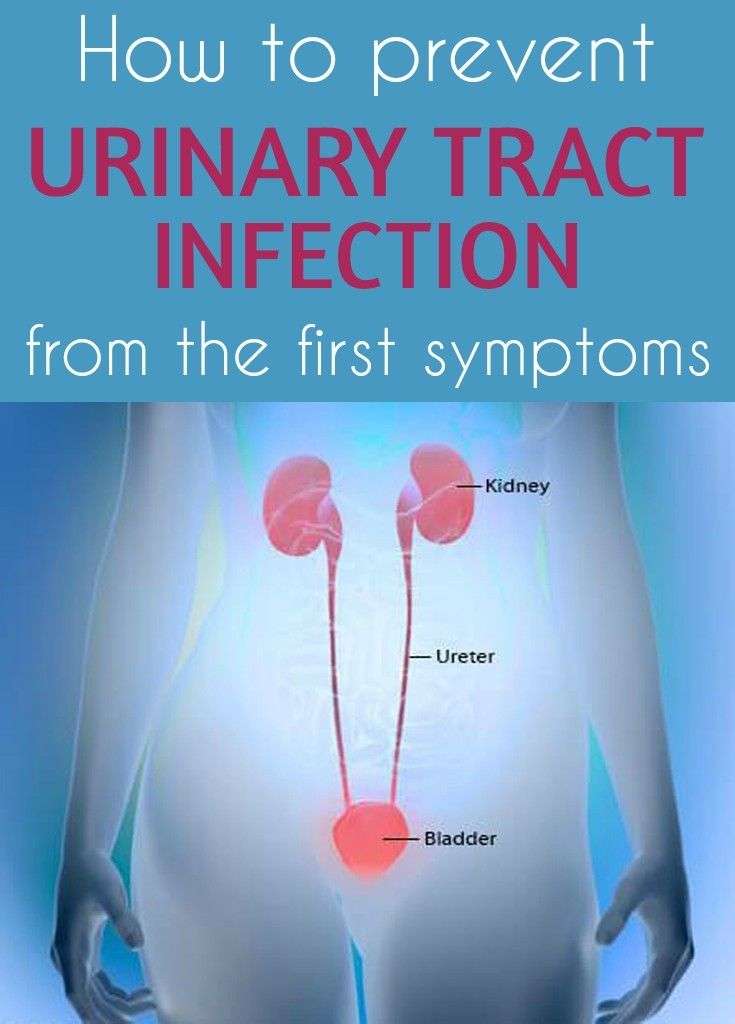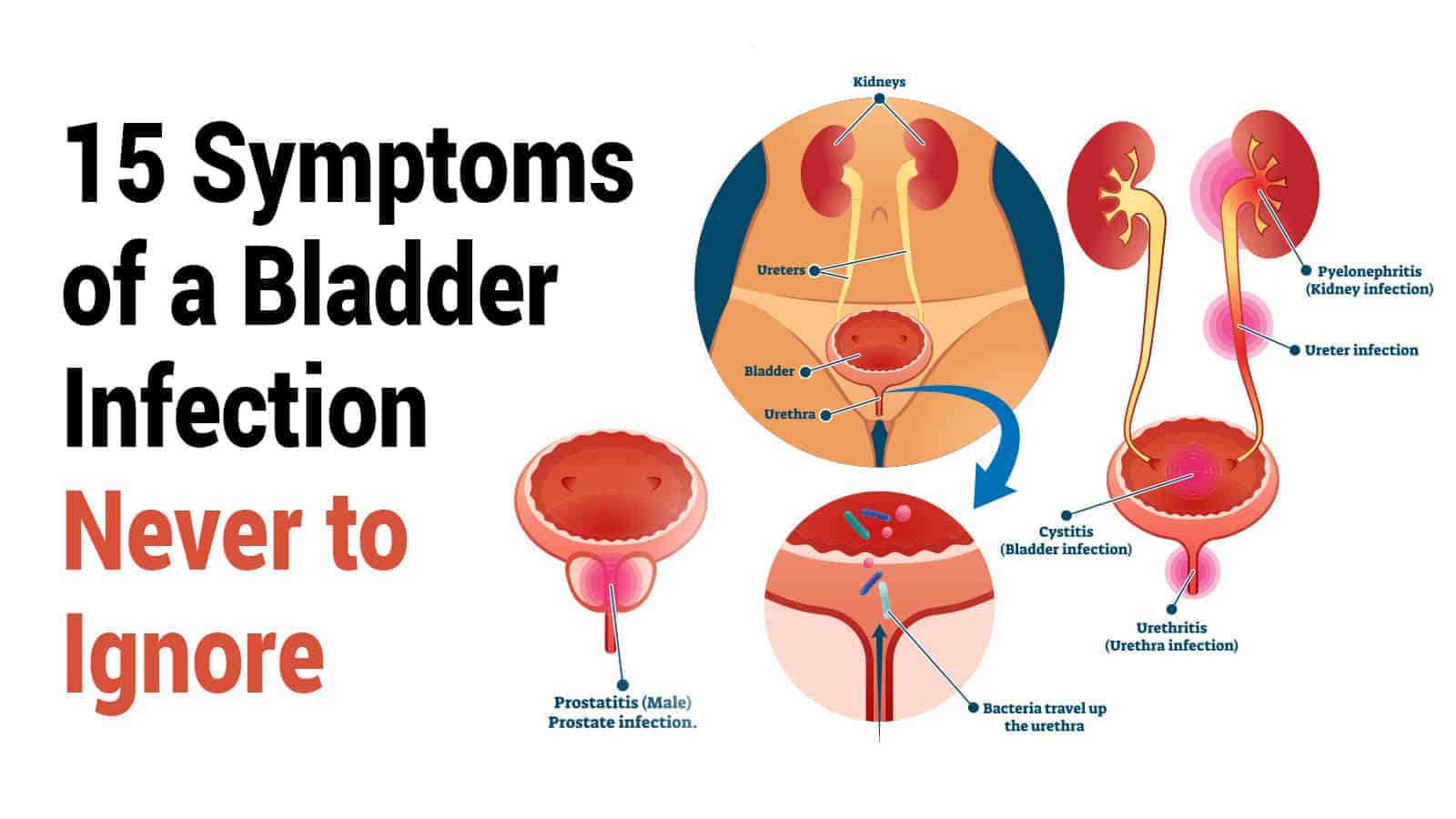Why Do Women Get Urinary Tract Infections More Often Than Men
Women tend to get urinary tract infections more often than men because bacteria can reach the bladder more easily in women. The urethra is shorter in women than in men, so bacteria have a shorter distance to travel.
The urethra is located near the rectum in women. Bacteria from the rectum can easily travel up the urethra and cause infections. Bacteria from the rectum is more likely to get into the urethra if you wipe from back to front after a bowel movement. Be sure to teach children how to wipe correctly.
Having sex may also cause urinary tract infections in women because bacteria can be pushed into the urethra. Using a diaphragm can lead to infections because diaphragms push against the urethra and make it harder to completely empty your bladder. The urine that stays in the bladder is more likely to grow bacteria and cause infections.
Frequent urinary tract infections may be caused by changes in the bacteria in the vagina. Antibacterial vaginal douches, spermicides, and certain oral antibiotics may cause changes in vaginal bacteria. Avoid using these items, if possible. Menopause can also cause changes in vaginal bacteria that increase your risk for urinary tract infection. Taking estrogen usually corrects this problem but may not be for everyone.
When Should I Reach Out To My Doctor About Frequent Urination
Because the conditions behind frequent urination can range wildly from casual to severe, you should speak to your doctor about anything outside of your typical urination patterns. In some cases, frequent urination may be just an annoying symptom that will end when you cut back on the caffeineor have the baby. However, if you are unsure why youre urinating so frequently, it is best to set up an appointment and talk about it. This is a symptom that can often be treated and isnt something that you need to just deal with.
There are a few signs to keep an eye out for and call your doctor immediately if you have them with frequent urination. These include:
- If you have a fever.
- If you are vomiting.
- If you have back pain .
- If you see blood in your urine.
- If you have a discharge coming out of your vagina or penis.
Key Points About Interstitial Cystitis
-
Interstitial cystitis is an inflamed or irritated bladder wall.
-
The cause of IC is unknown and it does not get better with antibiotics.
-
Symptoms of IC include changes in urination such as frequency and urgency pressure, pain, and tenderness around the bladder, pelvis, and the area between the anus and vagina or anus and scrotum and pain during sex.
-
There is no best way to diagnose IC. A variety of tests may be needed. Urine tests will be done and imaging tests may be used to look at the different parts of the urinary tract and make sure everything is normal. Tissue samples may be removed from the bladder and examined under a microscope to see if cancer or other abnormal cells are present.
-
Treatments are aimed at easing symptoms. A variety of procedures, medicines, and lifestyle changes may be advised.
Read Also: Augmentin For Urinary Tract Infection
Who Experiences Frequent Urination
The need to urinate is something that everyone feels. This shared experience isnt always consistent though. Sometimes you may need to urinate much more often than what is typical for you. This can happen to anyone. Men, women, and children can all have this symptom. However, its more common at certain times in your life or when you have other conditions. Youre more likely to frequently urinate if youre:
- A middle-age or old adult.
- Pregnant.
What Is A Urinary Tract Infection

Wondering where that burning comes from? A urinary tract infection happens when bacteria grow in the kidneys, bladder or urethra. The urethra is the tube that connects the bladder to the opening between the clitoris and the vagina so urine can exit the body.
Once the bacteria settle in, they wreak havoc and can cause a laundry list of UTI symptoms that include:
- Pelvic or abdominal pain.
- Feeling the urge to urinate even when your bladder is empty.
- Cloudy or reddish urine.
If the infection spreads to the kidneys or bloodstream, a woman may also experience:
- Nausea and vomiting.
- Middle back pain, a possible sign of kidney inflammation.
Recommended Reading: Baking Soda For Urinary Tract Infection
Eating Diet & Nutrition
Experts dont think eating, diet, and nutrition play a role in preventing or treating bladder infections. If you have any type of UTI, talk with a health care professional about how much to drink each day to help prevent or relieve your infection.
The National Institute of Diabetes and Digestive and Kidney Diseases and other components of the National Institutes of Health conduct and support research into many diseases and conditions.
Interstitial Cystitis Testing And Treatment
Testing & EvaluationMost people live with symptoms of IC for several years before their condition is diagnosed and they begin treatment. Part of the challenge in diagnosing IC is that there is no definitive test to confirm its presence. Instead, IC is considered a diagnosis of exclusion, meaning that your health care provider must rule out other possible conditions that may be causing your symptoms.
Some of the tests your doctor may perform leading to the diagnosis of IC include urine cultures , a physical exam, and a cystoscopy or an examination an examination of the bladder with a lighted scope that is passed through the urethra. Your doctor may also order additional tests to rule out other suspected causes of your symptoms.
Treatment
Also Check: What Causes Urinary Tract Infections In Elderly Females
How Do Utis Affect Pregnancy
Changes in hormone levels during pregnancy raise your risk for UTIs. UTIs during pregnancy are more likely to spread to the kidneys.
If you’re pregnant and have symptoms of a UTI, see your doctor or nurse right away. Your doctor will give you an antibiotic that is safe to take during pregnancy.
If left untreated, UTIs could lead to kidney infections and problems during pregnancy, including:
- Premature birth
- Low birth weight
How Are Urinary Tract Infections Treated
Your health care provider will figure out the best treatment based on:
- How old you are
Treatment for UTIs may include:
- Antibiotics
- Other medications to ease pain
- Heat to ease pain
You may also need to make lifestyle changes such as:
- Drinking plenty of water to help wash bacteria out of the urinary tract
- Avoiding coffee, alcohol, and spicy foods
- Quitting smoking
Don’t Miss: Over The Counter Urinary Tract Infection Medicine
When To Call A Doctor
Get medical help at once if it hurts to pee and you also have any of these symptoms:
- Belly or back pain
This may mean potentially life-threatening kidney disease, a prostate infection, a bladder or kidney tumor, or a urinary tract stone.
You should also call your doctor if:
- Symptoms return after youâve finished treatment.
- You also have discharge from your vagina or penis. This may be a sign of a sexually transmitted disease , pelvic inflammatory disease , or other serious infections.
- You have ongoing pain or a hard time peeing. This may also be a sign of an STD, a vaginal infection, a kidney stone, enlargement of the prostate, or a bladder or prostate tumor. Or it could be that the infection is resistant to the antibiotic your doctor prescribed.
Show Sources
Should You See A Doctor
Both UTIs and yeast infections should be reviewed and diagnosed by your doctor to prevent them from getting worse. UTIs that are untreated could lead to a more serious kidney infection. Yeast infections may also be something more serious, or the symptoms may actually be from another condition, such as a sexually transmitted infection.
Recommended Reading: How To Help A Urinary Tract Infection
Signs And Symptoms Of Frequent Urination
Frequent urination has a number of causes. To help you to decide whether or not to see a doctor, there are some signs that you can look out for.
Urgency
Urgency is the sudden, intense feeling that you need to urinate. This feeling can be overwhelming and you may feel like you cant delay relieving yourself. Urgency often causes your bladder discomfort.
People with regular bladder function can usually hold in their urine until they reach the toilet. However, urgency may cause you to leak before you get there. This occurrence is known as urge incontinence.
No change in habits
On average, adults urinate seven times a day while drinking 2 liters of water. If you drink more water, its normal that you may need to urinate more. However, if youre having to use the toilet more often and not drinking more water than usual, this is a sign of frequent urination.
You cant sleep
Getting a good nights sleep is important in maintaining your overall health. Frequent urination can interrupt your sleep or cause you to be unable to sleep through the night.
Your daily life is interrupted
Frequent urination can also make going about your daily life difficult. You may find that everyday activities can become stressful because you need to use the washroom often. If you find that frequent urination is impeding your life, you should talk to your doctor.
Can Lower Back Pain Cause Blood In Urine

Blood in the urine that accompanies severe lower back pain may indicate endometriosis, a common health condition that occurs in more than 11% of adolescent and adult females in the United States. Endometriosis occurs when tissue similar to the endometrium the lining of the uterus grows in areas of the body outside of the uterus.
Also Check: Can You Treat A Urinary Tract Infection At Home
What Causes Frequent Urination
There are actually many different conditions that could cause frequent urination. Many of these causes are based on your age, gender or possibly even both. You could experience frequent urination a few times throughout your life for different reasons. These conditions can range from minorand easily manageableto more serious issues.
Urinary tract and bladder conditions It may seem obvious, but issues with your urinary tract and bladder are some of the most common conditions to cause frequent urination. Urinary tract infections , in particular, are the most common cause of frequent urination. During a UTI, an outside infection enters the body and causes inflammation in your urinary system. This system is made up of the kidneys, ureters , bladder and urethra . Other conditions in this system that can cause frequent urination to include interstitial cystitis and overactive bladder syndrome. In very rare cases, frequent urination can be a symptom of bladder cancer.
Prostate problems In men, the prostate is a golf-ball-sized gland that makes some of the liquid that comes out during ejaculation. Your prostate grows as you do, but it can cause issues if it gets too large. A large prostate can place pressure on your urinary system and cause frequent urination. Conditions like benign prostatic hyperplasia prostate enlargement, are all fairly common and treatable by your doctor. Other conditions that could cause frequent urination can include:
Urinary Tract Infection Treatment
If you are a healthy adult man or a woman who is not pregnant, a few days of antibiotic pills will usually cure your urinary tract infection. If you are pregnant, your doctor will prescribe a medicine that is safe for you and the baby. Usually, symptoms of the infection go away 1 to 2 days after you start taking the medicine. Its important that you follow your doctors instructions for taking the medicine, even if you start to feel better. Skipping pills could make the treatment less effective.
Your doctor may also suggest a medicine to numb your urinary tract and make you feel better while the antibiotic starts to work. The medicine makes your urine turn bright orange, so dont be alarmed by the color when you urinate.
Also Check: How To Treat Stress Urinary Incontinence
Causes Of Frequent Urination
There are many causes of frequent urination. Its estimated that about 33 million American adults experience it at some point.
Overactive bladder
Most commonly, people who have to urinate frequently have an overactive bladder. This causes you to have sudden, intense urges to go to the bathroom. The bladder may contract unnecessarily even if theres only a little bit of urine in it, or may be overly sensitive.
Drinking too many fluids
If you find yourself needing to urinate often, you may be drinking too many fluids. What you drink also matters. Certain beverages, like coffee, tea, or other caffeinateddrinks can overstimulate the bladder. Alcohol can also have the same effect.
Urinary tract infection
A urinary tract infection will cause you to urinate frequently. Other symptoms of this infection include:
- Blood in your urine
- A burning sensation when urinating
- Only passing small amounts of urine
Diabetes
People with diabetes tend to feel thirstier than normal. When blood sugar levels increase, so does the feeling of the need to drink more water. This causes the need to relieve yourself more frequently.
Specific conditions
Waking Up During The Night To Pee
Waking up at night to pee more than once is considered frequent nighttime urination also called nocturia and it can happen with or without frequent daytime urination. Even though peeing more than one time per night becomes common as we age, its important to determine the cause so you and your doctor can identify the best treatment.
Don’t Miss: Best Yogurt For Urinary Tract Infection
Check If It’s A Urinary Tract Infection
Symptoms of a urinary tract infection may include:
- pain or a burning sensation when peeing
- needing to pee more often than usual during the night
- pee that looks cloudy, dark or has a strong smell
- needing to pee suddenly or more urgently than usual
- needing to pee more often than usual
- lower tummy pain or pain in your back, just under the ribs
- a high temperature, or feeling hot and shivery
- a very low temperature below 36C
Acupressure Points For Bladder Related Problems You Must Know
Acupressure is an age-old technique closely related to acupuncture with origins in Traditional Chinese Medicine . While acupuncture requires the use of small needles to target pressure points, or acupoints, throughout the body, acupressure uses pressure from your fingers or hands to target these points.
Acupressure is an easy practice to do by yourself or with help from a friend or family member. According to TCM, acupressure points are located along meridians on the human body. Meridians are pathways in which energy flows, and each corresponds to one of the vital organs . Acupoints are, on average, easy to find: many of them lay in small divots or crooks in the body . The amount of pressure applied will vary from person to person and depending on where the point is, but you typically want to apply firm pressure for several minutes to reap the full benefits.
In this article, we are going to break down 18 acupressure points for the bladder, such as acupressure points to induce urination and points for an overactive bladder. If you suffer from these problems, or any other bladder issues, read to see how acupressure can help.
Also Check: Does Uti Cause Bladder Leakage
Read Also: Home Remedies For Urinary Urgency
What Can Happen If A Uti Is Not Treated
If treated right away, a UTI is not likely to damage your urinary tract. But if your UTI is not treated, the infection can spread to the kidneys and other parts of your body. The most common symptoms of kidney infection are fever and pain in the back where the kidneys are located. Antibiotics can also treat kidney infections.
Sometimes the infection can get in the bloodstream. This is rare but life-threatening.
Other Symptoms To Watch Out For That Are Similar To Frequent Urination

If your frequent urination is accompanied by other symptoms, youll want to make an appointment or go to urgent care as soon as you can to get started on a treatment plan and make sure you arent experiencing a more serious condition. Some of these symptoms include:
- Painful urination
- Feeling like you still have to pee even after peeing
- Smelly or cloudy urine
You May Like: Burning Sensation In Urinary Tract
Is It Possible To Have A Uti Without Any Symptoms
Yes. Symptoms of a UTI can vary, and it’s not entirely uncommon for someone to experience no symptoms of a urinary tract infection. Its estimated that 1 to 5 percent of younger women experience asymptomatic bacteriuria , which is a UTI without the classic symptoms. While its unclear why the bacteria involved with urinary tract infections sometimes don’t cause symptoms for these people, we do know that instances of symptom-free UTIs increase with age. Up to 16 percent of women older than 65 have been found to have ASB, and that number grows to almost 20 percent for women over 80. Other factors that increase your chances of an asymptomatic UTI are:
- Urinary catheter use
Other Ways To Prevent Some Utis Coming Back
If you keep getting a bladder infection , there is some evidence it may be helpful to take:
- D-mannose a sugar you can buy as a powder or tablets to take every day
- cranberry products available as juice, tablets or capsules to take every day
Speak to your doctor before taking any of these during pregnancy.
Be aware that D-mannose and cranberry products can contain a lot of sugar.
If you’re taking warfarin, you should avoid cranberry products.
Page last reviewed: 22 March 2022 Next review due: 22 March 2025
Don’t Miss: How To Treat Urge Urinary Incontinence